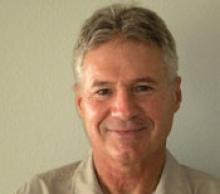Community Broadband Bits 18 - Dewayne Hendricks

Dewayne Hendricks is a serial entreprenuer, innovator, and wireless expert. Wired magazine labeled him a broadband cowboy back in 2001. And he is our guest on the 18th episode of Community Broadband Bits.
Our discussion focuses on the promise of wireless technologies and how a few entrenched interests in DC (the big broadcasters and wireless telephone companies like AT&T) are preventing innovative approaches that would dramatically improve the capability of all our modern technologies.
Hendricks is a prolific tweeter that comes highly recommended from us. And he has kindly recommended two papers readers may want to read following our conversation: David Weinberger's "The myth of interference" and Paul Baran's "False Scarcity" [PDF].
We look forward to inviting Dewayne back soon to discuss the Fiber versus Wireless debate. Let us know if you have any other questions we should ask when he returns!
Read the transcript from this episode here.
We want your feedback and suggestions for the show - please e-mail us or leave a comment below. Also, feel free to suggest other guests, topics, or questions you want us to address.
This show is 26 minutes long and can be played below on this page or subscribe via iTunes or via the tool of your choice using this feed. Search for us in iTunes and leave a positive comment!
Listen to previous episodes here. You can download the Mp3 file directly from here.
Find more episodes in our podcast index.
Thanks to Fit and the Conniptions for the music, licensed using Creative Commons.


